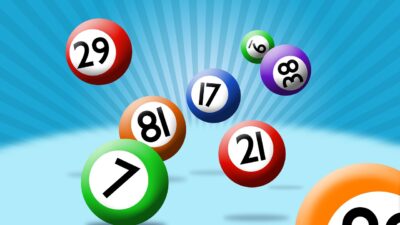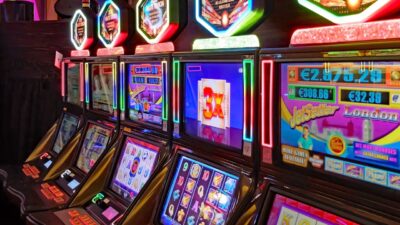Web-based casinos have changed many things, including how players access games. Now, if you want to enjoy European roulette, you only have to find a reliable gambling site. You can indulge in various versions of the game. If you are new to online casino gaming, however, a concern might pop into your head now and then. Is this game fair? Questions about fairness have been persistent in gambling. Even at physical casinos, players are quick to accuse operators of rigging, especially when they lose. Gambling websites present a different dynamic. Since players can’t see what’s going on behind the scenes, they find it difficult to trust their authenticity.
Fairness is the ability of a game to give random and equal results to all players. When wagering on roulette, you want to be sure that nothing influences the outcomes. However, when you don’t know how games function, believing in their randomness can be hard. Doubts regarding the fairness of online games aren’t unfounded. In his early days, iGaming suffered reputational damage due to fraudulent operators. While the legitimacy of online casinos and their products improved exponentially, the public remains wary. Learning the different methods operators use to ensure fair gaming is critical to reassuring players. This post highlights some of the vital elements of game fairness in online gambling.
The Use of Random Number Generators
A traditional casino has croupiers on roulette tables. They run the game manually. Hence, players can be confident they aren’t interfering with the results. What happens when playing on the web? Online casino games have random number generators. An RNG is a system that employs mathematical formulas to generate game results. Reading an online roulette guide gives you a vague idea of what this means. The algorithm used creates random sequences derived from a seed number. These strings of numbers determine how a game turns out. RNGs imitate true randomness. Therefore, predicting a game’s outcomes is almost impossible. The algorithm is tamper-proof, meaning it can’t be rigged.
RNGs apply to all casino games, from roulette to slots. The systems exist in two forms. A true or hardware random generator factors in external elements, such as atmospheric pressure, to create sequences. The software is secured cryptographically. Pseudo number generators mimic natural randomness using mathematical formulas. RNGs are the foundation on which online casino games are built. Given the security of RNGs, you can count on game outcomes to be unpredictable. Online casinos have no way of changing results, although it might not seem like it sometimes. All players who stake money on a game have the same chances of winning.
Licensing and Regulation
When gambling moved online, governments were not ready to regulate the market. It took some time before countries set up legislation to oversee online casino activities. Now, different jurisdictions have laws guiding operators and software manufacturers. From the UK to Canada, developers and casinos apply for licences to get permission to serve certain regions. Licensure is a critical metric of fairness. Regulatory bodies like the Malta Gaming Authority, UK Gambling Commission and Gibraltar Gambling Commission have rules. Licensees must observe particular standards when delivering their services. They enforce strong guidelines about the quality and fairness of products.
Therefore, a roulette game from a licensed supplier played at a registered gambling site is bound to be fair. Gambling regulation exists to protect consumers and industry’s integrity. Playing at a licensed casino gives you confidence. Although the US is still far behind other major markets in regulating iGaming, it is slowly catching up. Online gambling has become legal in most regions ever since states received the power to create their own regulatory frameworks. So, if you want to play live American roulette, you won’t have trouble finding a reputable platform.
Regulated Game Developers
Another reason to trust the fairness of online roulette titles is the calibre of game manufacturers in the sector. Providers are held to the same high standards as operators. Online gambling regulation requires suppliers to provide fair products. For this reason, developers use the latest technologies to offer quality titles that players can trust. The industry has software manufacturers with robust reputations spanning decades. Some providers started off in offline casinos and then ventured into iGaming. Thus, they have established brands that players can trust. When you play a roulette title from Pragmatic Play, you don’t have to worry about fairness because you know it’s from a trusted brand. Online casinos partner with dozens of suppliers to ensure variety. Any decent operator sticks with licensed providers because they contribute to its reputation.
Independent Testing
External audits of online casinos and game manufacturers are another fundamental of fairness. Reputable operators test their software and games through third-party agencies. These audits check if a gambling site is in compliance with applicable regulations. Fair play is one of the boxes a casino must tick to pass an evaluation. An external audit examines not just the games but the software as well. Using independent bodies guarantees the integrity of audits. GLI Labs, iTech Labs and eCogra are some of the recognised testing agencies in iGaming. The testing of games by developers before they go to the market ensures they adhere to the highest standards. You can tell if a software manufacturer or casino gets third-party audits by checking for a seal. The official website will typically have the certification information.
Provable Fairness
Have you ever played at a cryptocurrency casino? If so, then you know about provably fair gaming. Blockchain payments are among the latest trends in iGaming. Operators allow gamblers to use digital coins such as Bitcoin to bet. Cryptocurrency gambling introduced another aspect to the industry. Provable fairness is a technology that enables players to verify wagers. You can independently track your bet and tell if its results are true. Using algorithms, provable fairness shows if a game has been tampered with. Not all crypto casinos offer provably fair games, though. If you wish to leverage this technology, then you must find a gambling site that offers the option.
The fairness of online casino games is constantly in question because some players don’t understand how they work. Several aspects influence quality and fair play on gambling websites. A casino’s licensure, the suppliers it sources titles from and provable fairness are some elements to consider. When you know what’s what in casino gaming, then you can play your favourite roulette games confidently and trust the outcomes. Take responsibility in ensuring fair gaming. Stick to reputable, licenced casinos with products from regulated providers.




